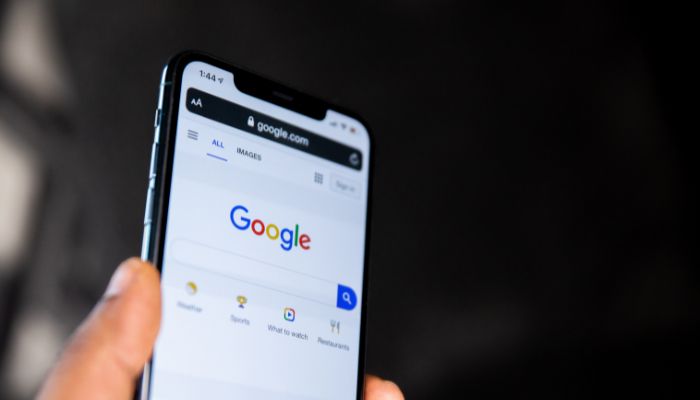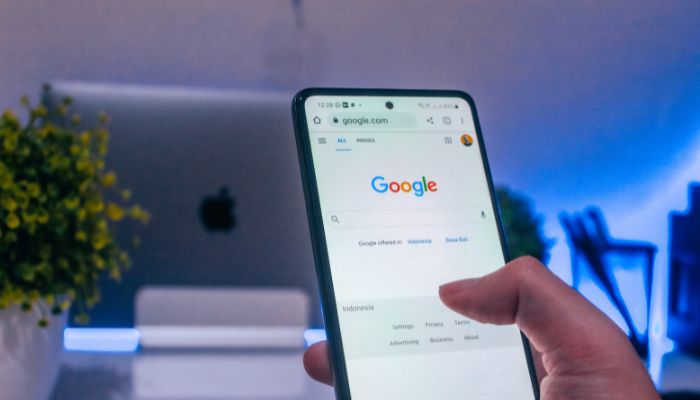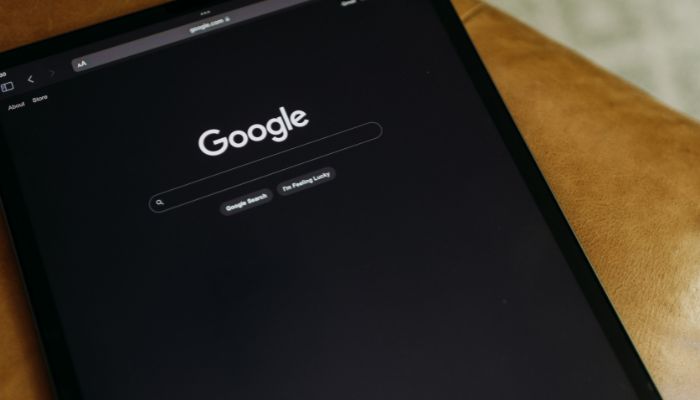
In the digital age, the illusion of privacy is often shattered by the harsh reality of data tracking. Private browsing, a seemingly safe haven, is not immune.
Yes, private searches can be tracked. While private browsing prevents storing history on the device, it doesn’t hide activity from internet service providers or websites visited. It offers limited privacy but not complete anonymity.
The article about can private searches be tracked dives into the underlying mechanisms of private browsing experience, exploring its true degree of privacy across different devices. It reveals techniques used to trace such browsing and offers practical strategies to enhance privacy.
Finally, it navigates the legal landscape surrounding tracking private browsing. Let’s decode the enigma of privacy in our online searches.
Table of contents
- Understanding the Concept of Private Browsing
- Mechanisms Behind Private Browsing on Different Devices
- The Reality of Privacy in Private Browsing Mode
- Techniques to Trace Private Browsing
- Limitations of Private Browsing
- Legal Aspects of Tracking Private Browsing
- Analyzing the Security of iPhone’s Private Browsing
- Practical Tips for Maximizing Privacy in Online Searches
- Frequently Asked Questions
- Conclusion : Can Private Searches Be Tracked
Understanding the Concept of Private Browsing
To fully grasp how private browsing works, we must first delve into the basic principles that govern this feature.
Private browsing mode, also known as incognito mode in some browsers, is a setting that prevents your browsing history from being stored as compared to normal browsing mode which does not offer such feature . While private browsing mode does not record your history, cookies, or form data, it is not entirely untraceable.
Understanding the concept of private browsing requires an acknowledgment that it only provides privacy from other users on the same device. It does not hide your activity from your internet service provider, the sites you visit, or from potential malware.
It’s crucial to note that while in private browsing mode, your IP address remains visible and your search can be tracked. This means that your geographic location, along with details about your device, can still be accessed by the sites you visit. Thus, while private browsing mode does offer a level of privacy, it is not a bulletproof solution for complete online anonymity.
It should be used judiciously, understanding its limitations and strengths, to provide the most effective browsing privacy possible.
Mechanisms Behind Private Browsing on Different Devices

Although private browsing functions similarly across various devices, the specific mechanisms and levels of privacy can differ significantly depending on the device and browser in use.
The private browsing feature essentially works by not storing information regarding the browsing session. This includes, but is not limited to, cookies, browsing history, and form data. On a computer, this feature is implemented by creating a new, isolated instance of the browser that is separate from the standard browsing session. This instance does not share cookies, history, or other data with the standard session.
Different browsers may offer varying levels of privacy. For instance, Google Chrome’s Incognito mode prevents the browser from storing your browsing history, cookies, and site data, and information entered in forms. Safari’s Private Browsing mode also prevents the browser from remembering the pages you visit and your AutoFill information.
However, it is crucial for device users to understand that private browsing is not entirely private. It does not make you anonymous on the internet. Websites can still track your visits, and your internet service provider can still view your browsing activity. Therefore private browsing should be seen as a tool for local privacy, not complete anonymity.
The Reality of Privacy in Private Browsing Mode
Despite internet users common belief in the absolute or complete privacy of private browsing mode, the reality is that these sessions’ data can still be accessible or trackable by various entities. The reality of privacy in private browsing mode is not as absolute as many assume. Many users often wonder, can people see your search history even when using this mode?
Private browsing mode, typically signified by a mask or incognito icon on most modern browsers, promises a degree of privacy by not storing browsing history, cookies, or form data. However, this doesn’t equate to full anonymity or invisibility online. The data carried in this mode can still be visible to third parties like your Internet Service Provider (ISP), the sites you visit, or any malicious software lurking on your online device.
Moreover, if you log into a website while in private browsing mode, that site can still track your activities. The key reason is that private browsing mode operates on the client side (your device), but it has no control over what happens on the server side (the website).
Techniques to Trace Private Browsing

We should now delve into the various techniques that can trace your activities during private browsing.
Despite popular belief, private browsing is not a guaranteed cloak of invisibility; your activities can still be traced by determined entities using advanced technical methods.
The following list includes five techniques to trace private browsing:
Browser Fingerprinting:
This technique involves collecting information about your browser configuration, including screen resolution, operating system, and installed plugins, which can create a unique fingerprint that is identifiable across sessions.
IP Address Logging:
Internet Service Providers (ISPs) and sites can log your IP address, even during private browsing, providing a record of your online activity.
Cookies and Super cookies:
While most cookies are deleted in private mode, some ‘supercookies’ or ‘zombie cookies’ can persist and track users.
DNS Cache Snooping:
Even in private mode, your computers DNS cache can hold a record of the sites you have visited, enabling tracking.
Keystroke Logging:
Malicious software can record your keystrokes, potentially revealing your online activities, even during private browsing.
Limitations of Private Browsing

Incognito Mode and Data Deletion
When you use the incognito mode in popular browsers, it might seem like you’re getting a clean slate. This mode promises not to save your browser history, login information, or other website data. But here’s a common misconception: it doesn’t mean you’re invisible on the internet.
While incognito mode does get rid of third-party cookies and your previous searches after you close the window, it doesn’t entirely protect your internet activity. For instance, network providers and sites can still see what you’re up to. So, if you visited a website in incognito mode, the website, as well as your internet service provider, might still know about it. This is because the security feature of incognito mode is more about protecting your data on the device, not hiding your activity from sites or online services.
Tracking Mechanisms in Incognito Mode
Even in incognito mode, several tracking mechanisms are at play. One of the biggest misconceptions is that private or incognito mode will shield you from all internet trackers. That’s not entirely true.
Firstly, third-party cookies might be blocked, but not all actual cookies are. Websites can use first-party cookies, which are set by the website you’re visiting, to track some of your activities. These cookies can remember things like what’s in your shopping cart and your login status.
Then there’s cross-site tracking. This is when third-party websites, like advertisers, track your activity across different sites. Even if cookie-based tracking is limited in incognito mode, sites can use other methods like browser fingerprinting techniques. These techniques look at the unique combination of your browser choice, settings, and device specifications to identify and track you.
Moreover, if you’re logged into your social media accounts or email accounts while browsing, these platforms can track your activity across different sites. For instance, if you’re logged into your Google account and use Google Search, even in incognito mode, Google might still record your search activity.
Lastly, while incognito mode might block cookies by default, it doesn’t offer tracking protection against all forms of tracking. For more comprehensive privacy protection, users might need to look into additional tools or browsers specifically designed for privacy, like the Tor Browser.
In conclusion, while incognito mode offers a level of privacy, it’s essential to understand its limitations. It’s a convenient privacy tool, but not an absolute internet freedom tool.
Legal Aspects of Tracking Private Browsing
Understanding the legal aspects of tracking private browsing involves a complex interplay of privacy laws and technology regulations, and it raises important questions about the balance between individual privacy rights and the interests of law enforcement or commercial entities.
The question of ‘can private searches be tracked’ is not simply a technical one, but also a legal one. It involves the interpretation of laws and their application to rapidly evolving technologies. Here are some of the key legal considerations:
- Data Protection Laws: These laws regulate how personal data can be collected, stored, used and disclosed. They also provide individuals with certain rights over their personal data.
- Privacy Laws: These laws protect individuals’ right to privacy, which includes the right to keep their online activities private.
- Surveillance Laws: These laws regulate when and how law enforcement agencies can conduct surveillance, including online surveillance.
- Telecommunications Laws: These laws regulate the use of telecommunications networks, which includes the internet.
- Criminal Laws: These laws can potentially be used to prosecute individuals who unlawfully track others’ private browsing.
Understanding these legal aspects of tracking private browsing can help individuals better protect their privacy rights.
Analyzing the Security of iPhone’s Private Browsing

While the iPhone’s private browsing feature is designed to prevent web history and cookies from being saved, it is crucial to critically evaluate the security of this feature against potential tracking methods.
In a private browsing session on an Apple device, the Safari browser does not retain visited page information, search history, or AutoFill data from the session. However, this does not imply full-proof security against all forms of tracking.
For example, while browsing private in this mode, the ISP, or any other entity that is monitoring the network or internet traffic, can still view the websites visited.
A significant vulnerability of private browsing is that it doesn’t provide protection against tracking cookies, which are commonly used by advertisers and third parties to track user behavior across multiple sites.
Even though cookies are not saved post-session, they are active during the session, and can hence track user activities.
In essence, while the iPhone’s private browsing feature adds a extra layer of privacy, it doesn’t provide comprehensive anonymity. Users must consider additional measures, such as using VPN service or specialized browsers, to enhance their online privacy.
Practical Tips for Maximizing Privacy in Online Searches

In light of a user’s increasing need for online privacy and the shortcomings of private browsing, it becomes imperative to explore practical measures that can increase privacy during online searches. While private browsing can limit the storage of your browsing history, it doesn’t entirely protect your online privacy. Therefore, it’s crucial to adopt extra measures.
Here are some practical tips for maximizing privacy during online searches:
- Use privacy-focused search engines: These search engines, like DuckDuckGo, do not track or store your search history.
- Use a Virtual Private Network (VPN): A VPN can encrypt your online activity, making it harder for others to track.
- Regularly clear your browsing history: Even with private browsing, certain data can be stored temporarily. Regularly clearing your private browsing history can further enhance your privacy.
- Browser plug-ins: Tools like HTTPS Everywhere can encrypt your communications with many websites, increasing your security.
- Limit sharing personal information: Be wary of what information you provide online. The less information available, the less there is to track.
Frequently Asked Questions
What Are the Potential Dangers of Private Browsing?
Private browsing, though perceived as secure, can pose risks like malware and phishing attacks. For instance, harmful sites may still install malicious software, and phishing schemes can deceive users into providing personal information.
How Can Private Browsing Impact My Internet Speed?
Private browsing doesn’t typically affect your internet connection speed directly. It may slightly slow down due to the lack of cached data, as each website needs to load fully each time it’s visited in this mode.
Can Private Browsing Protect Against Viruses and Malware?
Private browsing does not offer protection against viruses and malware. It merely prevents your browser history from being stored on your computer. It is always advisable to use trusted antivirus software for comprehensive protection.
Are There Any Specific Instances When I Should Avoid Using Private Browsing?
Private browsing should be avoided when you need to save browsing history, passwords, or autofill information. It does not offer comprehensive security and is not suitable for safeguarding sensitive online activities.
How Does Private Browsing Affect My Digital Footprint?
Private browsing minimizes your digital footprint by not storing browser history, cookies or form data. However, it doesn’t make you anonymous online. Your Internet Service Provider and websites visited can still track your activity.
Conclusion : Can Private Searches Be Tracked
In conclusion, while private browsing modes offer a degree of privacy feature, they are not entirely untraceable. Various techniques can be used to track activity, even in private mode. However, strategies can be implemented to enhance privacy.
Legal aspects also play a significant role in the tracking of private browsing. Understanding these mechanisms and taking necessary precautions can help individuals maintain their privacy while venturing into the digital world.